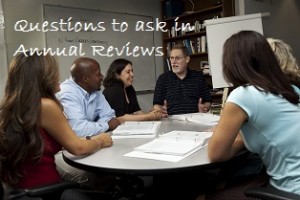So the beginning of the academic year has arrived. If your child has a Statement or an EHCP, you will have a formal meeting or Annual Review at some point this year to review progress and set new targets for the next year. Many schools are fantastic and can give great support and advice in these meetings, but as your child’s advocate you should be prepared with your own questions and information.
Before the meeting
– Make sure you have received copies of any reports and paperwork. Also make sure that you have read them. Write down any queries or questions you think of so you can ask them in the meeting.
– Check that all professionals have been invited. This is particularly important if it is a transitional review and you are thinking about the next Key Stage and possibly changes in schools. It would be great to have an Education Psychologist involved in the meeting. It can be tricky to get professionals to meetings as their diaries book up quickly, so make sure the dates are sent out in advance!
During the meeting
– There should be a discussion around progress: have last years targets been met and what is the plan for the next year. You should be included in this discussion and it should be recorded in the paperwork. Make sure you are happy with the new targets. Also make sure that a plan has been made for delivering the support e.g. who is doing it and how often. There should also be a way of reviewing the targets to ensure they are working.
– Make sure you understand how your child is performing academically compared to their peers. Now this can be hard to hear, but you must understand if your child is catching up or if the gap is getting wider. This will help inform your decision making about schools and support that your child might need. Now last year you would have been given national curriculum levels, however these have now been scrapped. As the Government hasn’t set out a new system it is being left to each individual school to decide how to track progress. Whatever system your school is using, make sure you understand it and if you don’t ask.
– Ask if there are any other agencies that might be able to offer help or guidance. This can vary depending on where you live, but it is worth asking. Many Special Schools offer outreach to local mainstream schools – would this help? Equally, if your child is in a Special School would up to date information from an Education Psychologist or Speech Therapist be useful?
– Ask school how they feel things are going? Do they have enough support? Would more hours be useful? Are they getting reports/ targets from outside agencies? Do they feel this is the right place for your child? Is there anything you could be doing at home to help? You want to work in partnership with the school and as parents you can help chase appointments/ reports/ case officers etc
– You don’t just have to talk about academic progress or difficulties. If something is happening at home you can talk about this too. It fills in the whole picture of your child and school maybe able to suggest something to help. Equally, you may well be able to give the school support or ideas to try with things they are finding tricky. This is about sharing ideas.
– Many annual review meetings are only an hour. It can be hard to fit in everything you want to say. If you feel you have lots of questions, or would like to spend more time discussing issues you can always ask for a longer appointment or ask if you could book another meeting. You must be happy with the information you have been given and have enough time to ask any questions.
– Lastly, but really importantly, remember to celebrate the progress and success of the last year. There is so much paperwork and information to go through, it can easily get forgotten that you are also there to look at all the great things that have happened, not just the bits you feel aren’t working!
If you have found this post useful, do check out our e-book, which is full of practical advice to help you and your child at every step of the way through the speech therapy process.







Leave a Reply